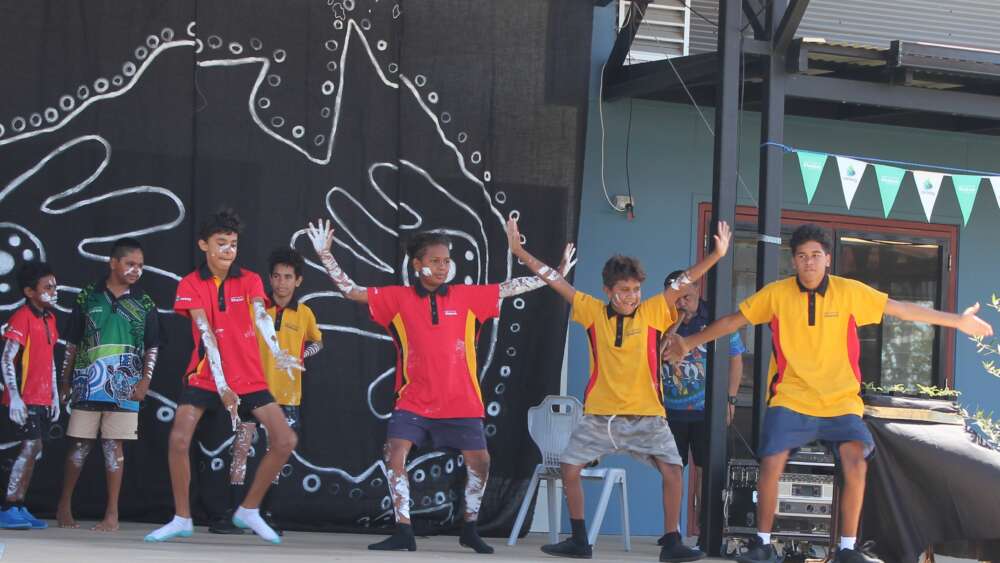After being saved from closure, a Townsville school specialising in education for children from Aboriginal and Torres Strait Islander backgrounds has celebrated a new era with dancing, prayers and a tree-planting ceremony.
At a dedication event this morning, Shalom Christian College changed its name to Carinity Education Shalom, to bring it in line with four other schools around Queensland operated by not-for-profit Carinity.
Carinity, an outreach of Queensland Baptists, acquired the school from the Uniting Church in 2018. When it reopened its doors in 2019, the school went up to Year 7. Now, those senior students are in Year 9 and in 2024 they will be the first senior graduating class of year 12. In the past two years, overall enrolment has doubled from 70 students to almost 140.
“That’s a significant achievement, and I think, and it means that we are a valued space in Townsville and have a place in God’s heart,” says Principal Sharyn Ive.
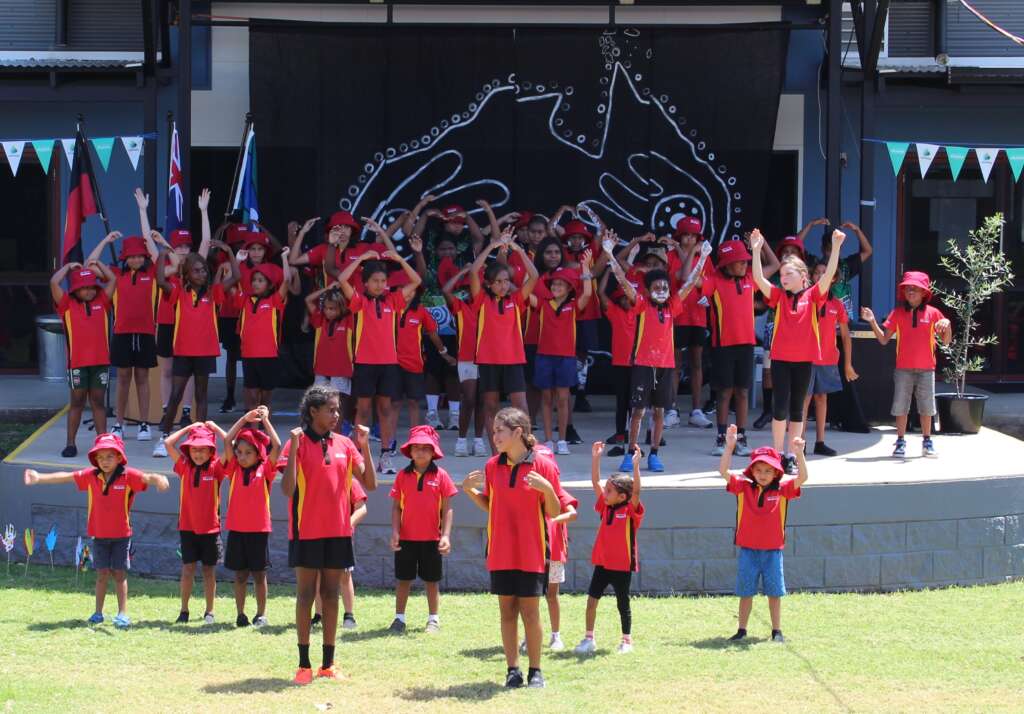
Songs and dances of praise at today’s dedication event.
She believes the growth in enrolments is due to increasing demand for the school’s educational model, which emphasises loving students well before teaching them.
“Shalom School has been and always will be a place where young people are celebrated,” she told Eternity. “We accept people for who they are, and we support them in a loving way to reach their full potential.
“All the students would say it’s like family for them. It’s a place of belonging and acceptance and love. They all know that we love them and we have to love them well before we can teach them.”
At today’s ceremony, Sharyn emphasised that the school was still a Christian school, even though it no longer had Christian in its name and that it was God’s dream to continue the school.
“We don’t shy away from that. And then in fact it’s our point of difference and our families want a Christian education for their children,” she tells Eternity.
The school was established 30 years ago by visionary members of the Uniting Aboriginal and Islander Congress, the Indigenous arm of the Uniting Church, she says.
“They showed great tenacity and commitment to answering God’s call to action, to improve the lot of our First Nations people. They recognised that education was a way to positively influence the economic health and employment outcomes of our First Nations people. But they also wanted to give our First Nations people that Shalom in terms of the Bible, which means universal flourishing, wholeness, peace and delight. That’s why we have continued that tradition of having Shalom in the name.”
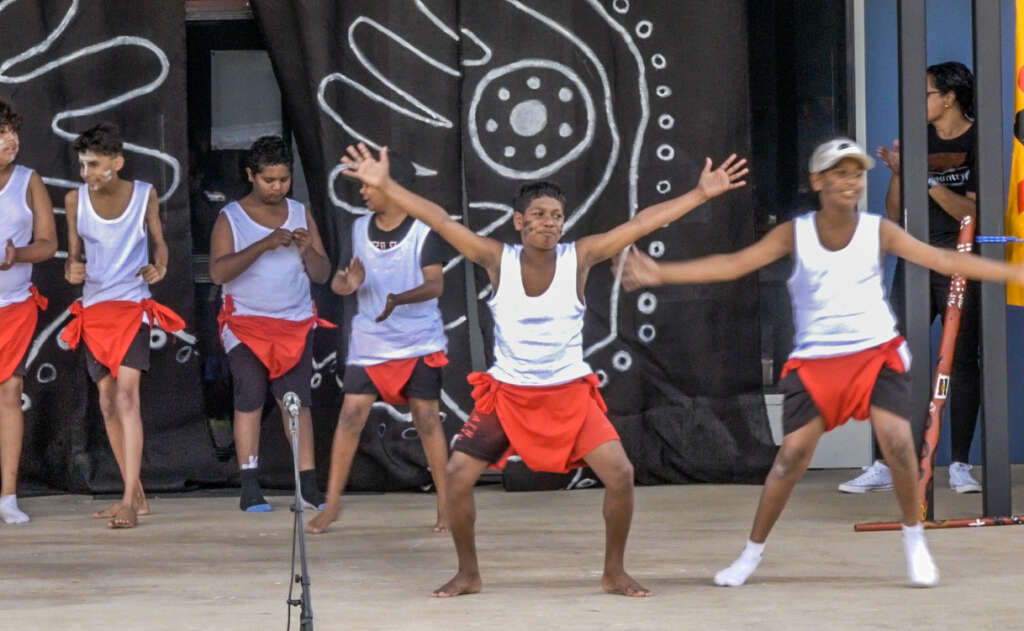
Students celebrate NAIDOC week in September.
With a student body that’s 96 per cent Indigenous and four out of ten teachers also Indigenous, the school has made a point of removing the obstacles to achievement for First Nations people.
“What we do is we eliminate those barriers that stop them from coming to school, and one of them is transport. So we bus them from their home every day, pick them up, drop them home as well after school,” says Sharyn.
“We give them breakfast, and we provide emergency lunch – and clothing if we need to – but we do it in a way that’s respectful.”
In addition, the school employs a youth and family support worker who visits the families, helping students get to doctors’ appointments for hearing checks, and so on.
Once these barriers to attendance are removed, students achieve at the same level as non-Indigenous students. “Talent is universal, but opportunity is not. So we provide that opportunity for them.”
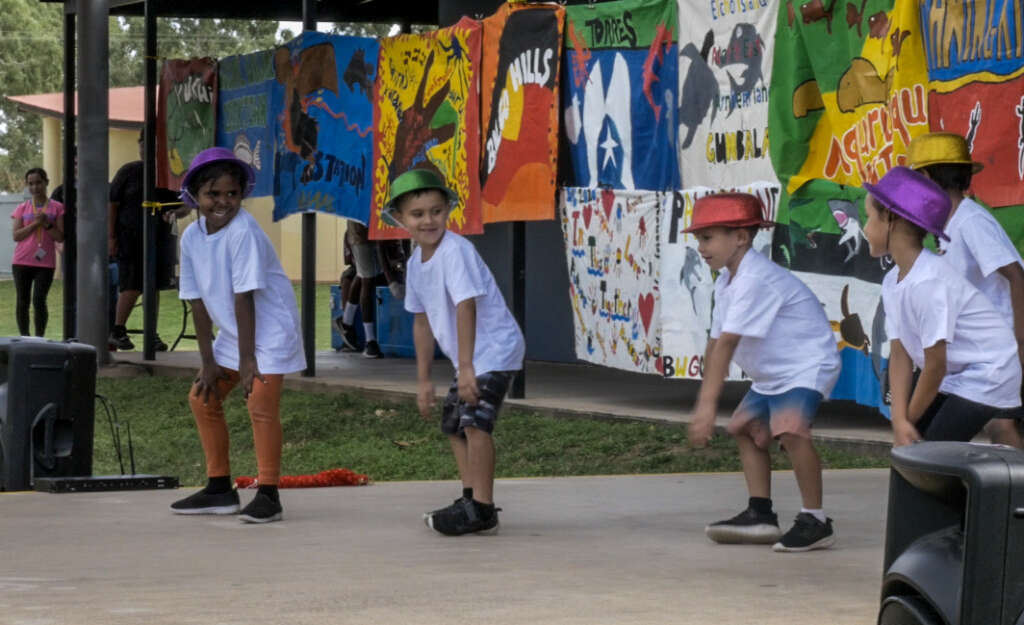
A NAIDOC performance by primary students.
Since Sharyn joined the school as principal back in 2011, she has noted a dramatic increase in confidence among the students.
“In 2012 I was teaching Year 9s and my youth worker and I took months to get to know the students and build that trusting relationship that enabled them to share their dreams and goals. Whereas now I walk through the classrooms and I see the students’ learning and personal goals proudly displayed against their photos on the wall.
“So that tells me that we’ve got good, strong, healthy student-staff relationships. Mutual trust and respect, but also a school with pride and high expectation. I think it’s also helpful that we have grown the school quite slowly and taken our time to grow the secondary school and particularly spending time building a school culture that we want.”
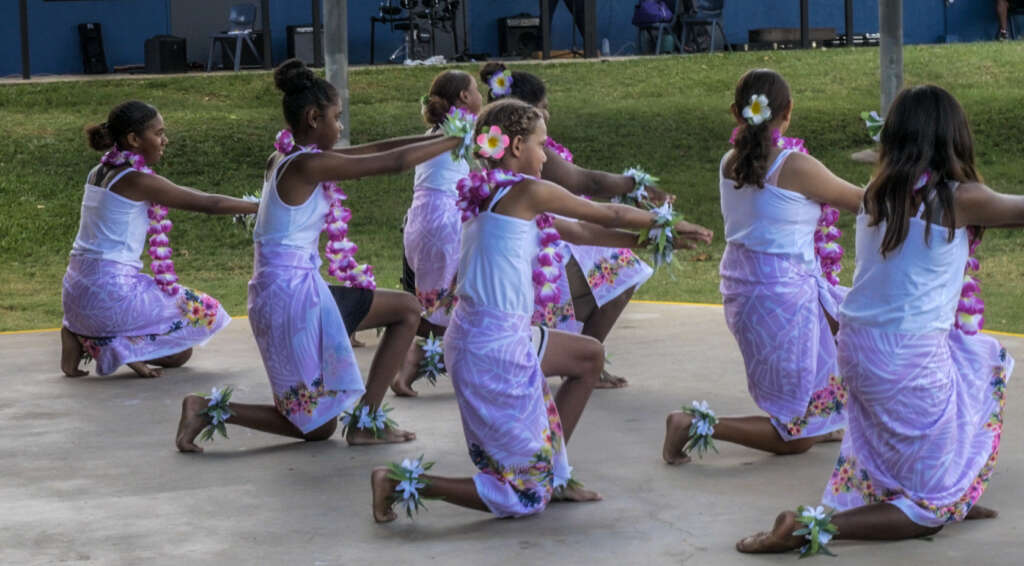
A beautiful dance for NAIDOC week.
Remarkably, primary and secondary students alike hand in their phones without complaint at the office each morning because the parents don’t want any distraction from learning.
Asked what the main challenges the school faces in the future are, Sharyn highlights costs and staff shortages.
“We are a non-fee school, so our students just get on the bus with nothing. We fund everything around it and we are a not-for-profit organisation. So making sure our fleet of buses is large enough to bus every student is quite costly. Also the secondary school has not been occupied since 2017, so the cost of renovations is quite expensive.
“There’s a shortage of teachers in Queensland and particularly North Queensland, too. So trying to find staff as we move forward is really quite tricky.”
Email This Story
Why not send this to a friend?
